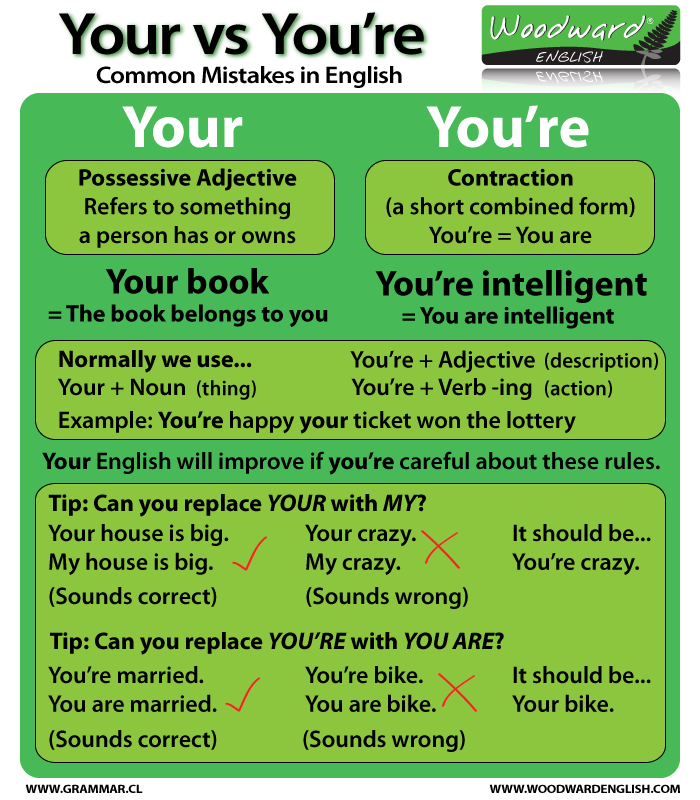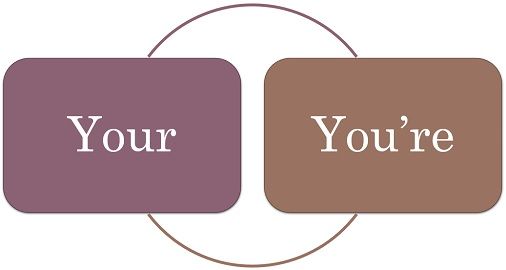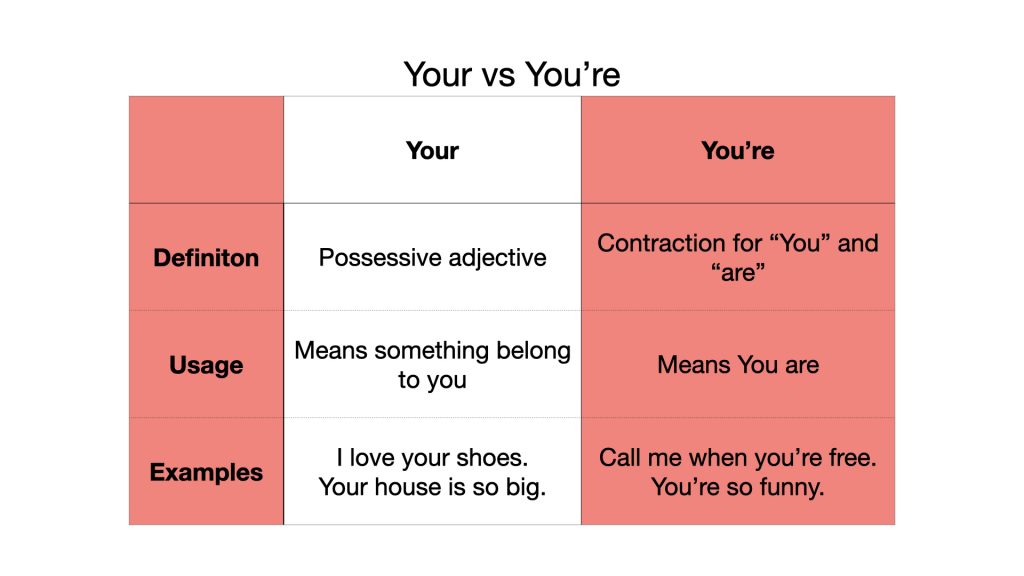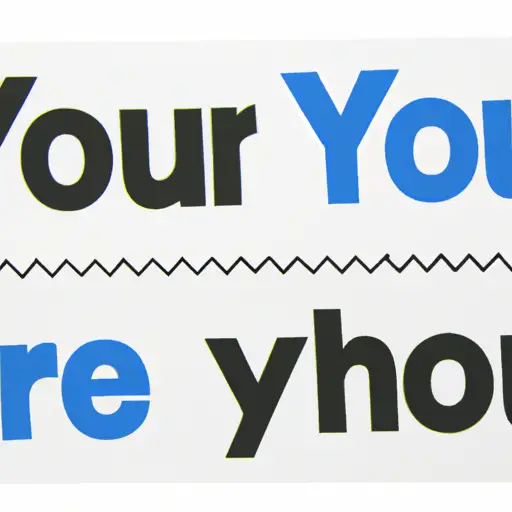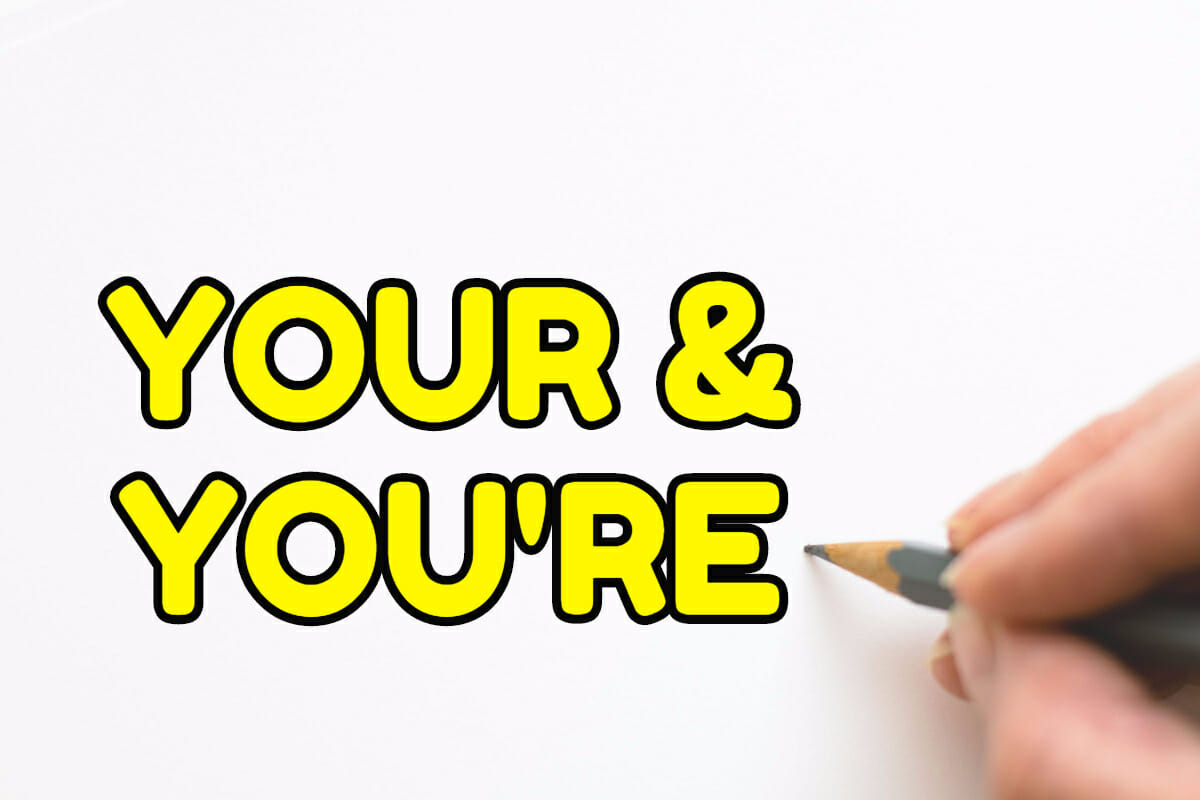For our text-based lesson. · if you want to show how something belongs to or is associated with someone, “your” is the correct usage. Take your factory worker, for instance. Your power brakes dont need that much servicing. The possessive form of you: · your (pronoun): The path is on your left heading north; The meaning of your is of or relating to you or yourself or yourselves especially as possessor or possessors, agent or agents, or object or objects of an action. Your is a word we often use in everyday conversation and writing … A possessive pronoun used to indicate ownership or association with the person being addressed. Belonging to or associated with an unspecified person or people in general: Your first taste of freedom. · learn the definitions and differences between “your” and “you’re,” and how to use them in sentences correctly—with examples. Your is the second person possessive determiner. · among the most common mistakes when writing—especially when writing something quickly like an email or text—is using you’re and your incorrectly. (used informally to indicate all members of a group, occupation, etc. , or things of a particular type): In this video, you’ll learn more about when to use your and youre correctly in american english. This lotion is for your head only. In this article, we’ll help you remember which one to use every time so that when it comes to choosing your or you’re, you’re your own best resource. Your pronoun (belonging to you) add to word list belonging to or connected with the person or people being spoken to; Your can refer to one or more people. However, if you wish to use the shorter form of you and are to communicate about someone in the present, use you’re. Of, belonging to, or associated with you:
Your Guide To Hdhub: Everything You Need To Know (And More!)
For our text-based lesson. · if you want to show how something belongs to or is associated with someone, “your” is the correct usage. Take...

